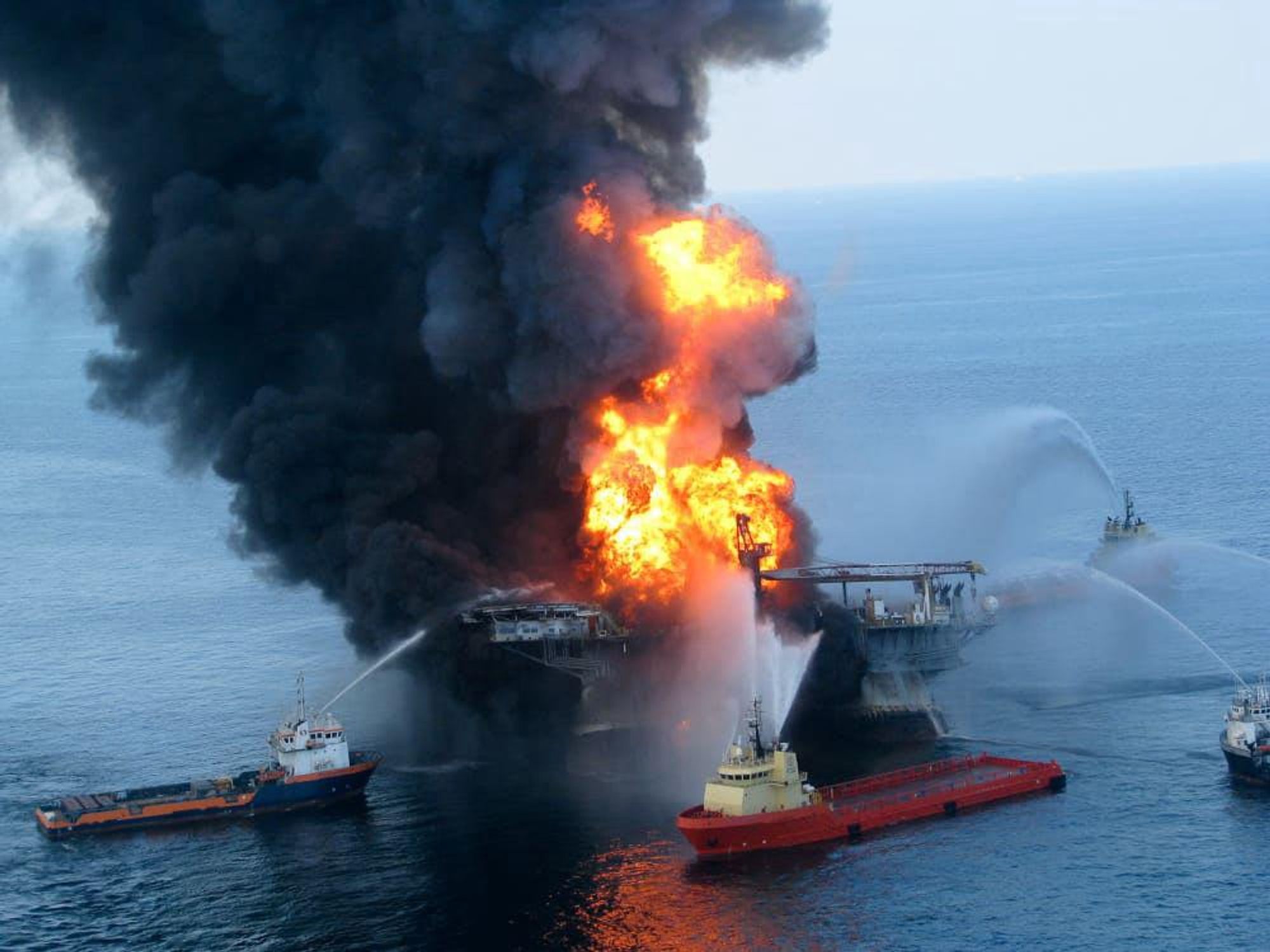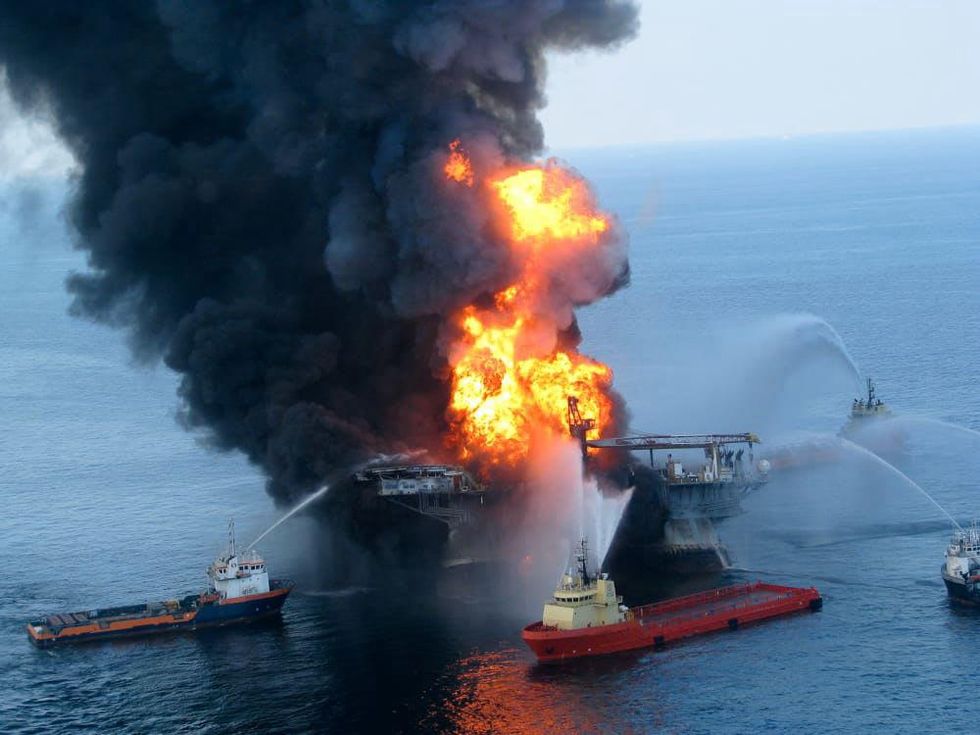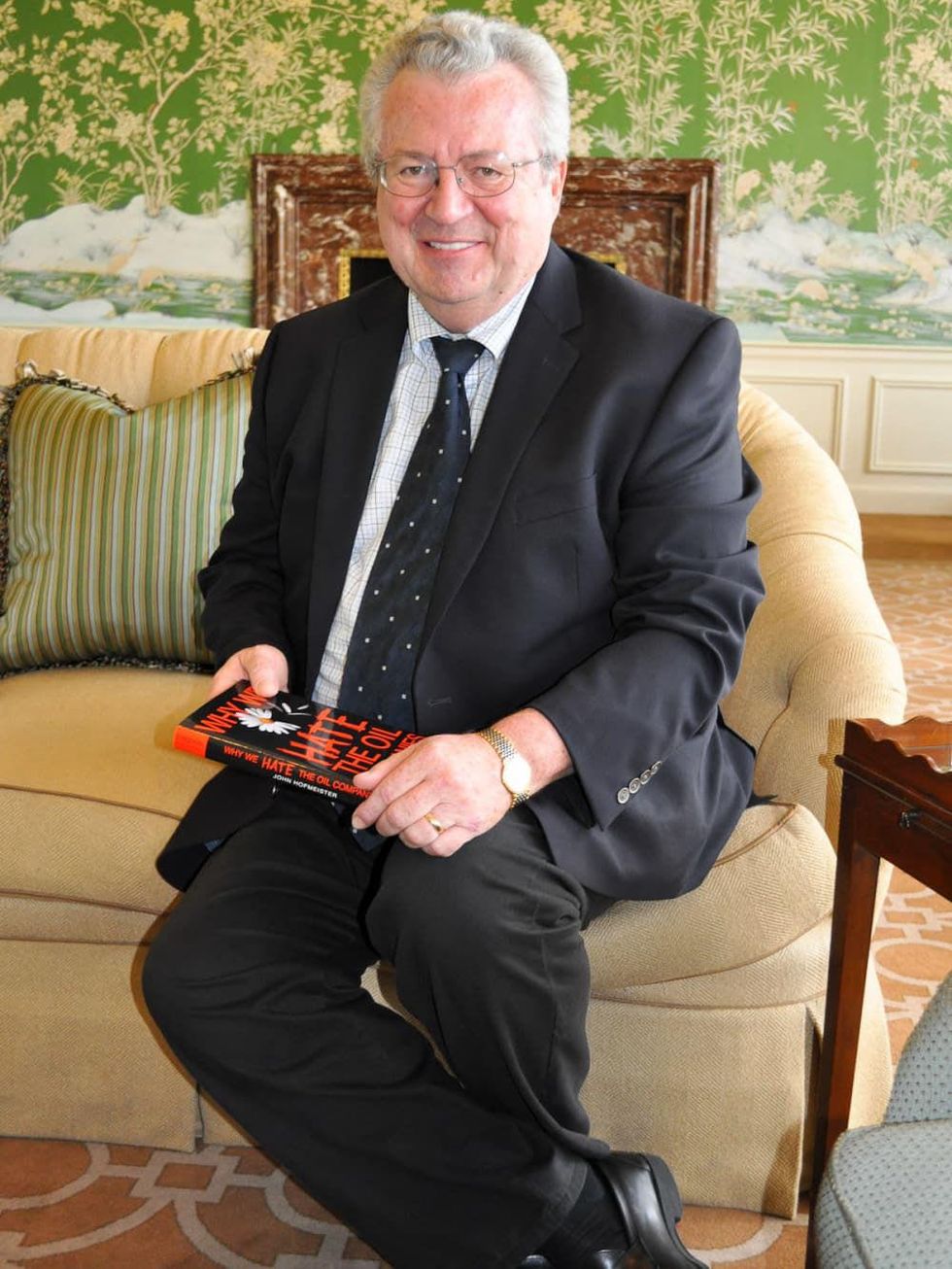The CultureMap Interview
Hating oil companies isn't a solution: John Hofmeister wants to change the way Americans look at energy

While the Deepwater Horizon oil spill has proved to be a disaster for off-shore drilling, it has been something of a public relations boon for Houstonian John Hofmeister, retired Shell Oil president. In recent weeks, the long-time outspoken critic of U.S. energy policy has been the darling of the talk show world with appearances on Good Morning America, the Today Show, CNN and more.
What brings Hofmeister to the spotlight is not only his seasoned perspective on the nation's energy situation but also the fortuitous publication date of his book Why We Hate the Oil Companies. Published by Palgrave MacMillan, the book officially launches on Tuesday. Hofmeister is in New York all week on a media blitz for the book.
Late last week, he introduced his project to several dozen friends and associates at River Oaks Club Country Club where CultureMap had the opportunity for a one-on-one with the man who calls himself "an energy insider and straight shooter."
CultureMap: What was your motivation in writing this book?
John Hofmeister: It's really to educate everyday Americans on what stands between them and affordable energy in the long term. And there are three obstacles: The industry itself, the special interests, but most of all the politics of the U.S. government and how the U.S. government has for the last 40 years failed to address our future energy security or our energy needs.
CM: How do you think that the book going will be received by your former colleagues in the oil industry?
JH: Well, I'm not saying anything in the book that I didn't say when I was Shell president. I was quite outspoken at the time on the industry's failure to engage everyday Americans on the issues of energy, gas prices and profitability. And I'm continuing on that theme. Unless the industry speaks for itself and we put a human face on the industry, the industry will be disliked by very many people.
CM: Is this a secondary mission with your book — to encourage the oil industry to present a friendlier face?
JH: I think the oil industry, the gas industry, the utilities have done a tremendous job for America. They bring us the energy we need to live our lives, to support our economy. The fact that we don't promote that, the fact that we don't explain it, and we don't educate the public on what it takes — what kind of risks have to be dealt with, what kind of capital investment, what kind of technology — is problematic. People need to understand that.
If you look at what the telephone companies or the IT companies or the consumer electronics companies do — the oil industry and the utility industry ought to learn from those folks because they do a great job of engaging their public.
CM: What do you think is the most controversial aspect of your book, what will cause a stir?
JH: Well, I think there are several controversial stories in there which will cause a reaction. I primarily deal with, in terms of controversy, the ugliness of political partisanship and how it is frustrating the good will of this nation and it is setting this nation back in terms of its relations with other nations. It's an embarrassment. And we should all be ashamed that our elected officials are such partisans.
Secondly, the selfish interests of both the special interests and the industry will probably be taken exception to. But most of all, I attack the structural disfunction of the executive branch, the legislative branch and the judicial branch of our national government. Our founders may have been brilliant but they did not appreciate or understand what it would take for 21st century energy to be set forward in public policy. And the mechanisms, the structures, the processes we have in government today cannot get the job done. I'm sure that will be debated by many people.
My solution will also be controversial because at a time when many people are challenging the credibility of the Fed, (the Federal Reserve Bank) I'm proposing that a Fed-like solution is the only way that we will get our energy future sorted out. I call it the Federal Energy Resources Board and if we're unwilling to put energy under the auspices and the governance of an independent regulatory commission, the likelihood that we will fall into an energy abyss in this nation is simply guaranteed.
CM: In your book, you mentioned the solution to an oil spill some years back in Saudi Arabia by bringing super tankers to clean it up. Have you offered that as a solution for the Deepwater Horizon disaster?
JH: I'm trying to put it forward as much as I can. I'm trying to give it the attention it deserves. For the main purpose of getting a thumbs up or a thumbs down on "Should we do this?" It's been done before, not in this part of the world. But you know we certainly ought to consider it. BP ought to be listening. The Coast Guard ought to be listening to see whether this can actually be an idea that works.
CM: So the publication of your book couldn't have happened at a more interesting time?
JH: It is ironic. It is what it is. The title was chosen more than 18 months ago . . . and so the irony of today. But any day, as we know, there could be an incident in a risk-based industry — whether it's the airlines, coal mining, whether it's truckers driving down the highway, we live in a risk-based society.
The book will help more and more Americans understand the energy issue which is being addressed by Citizens for Affordable Energy, the foundation that Karen (his wife) and I started. And that foundation is intended to give everyday Americans a comfortable working knowledge of energy and what it takes to have affordable energy and available energy through the 21st century and well beyond. And so we'll keep working on communicating that to everyday Americans.
Today, the American public suffers from misinformation, disinformation and lack of information, a lot of it perpetrated by their elected officials. They need to know as much if not more than their elected officials so they can't get snookered into the election process of supporting someone who is working in their personal interests but not in the interests of society.


